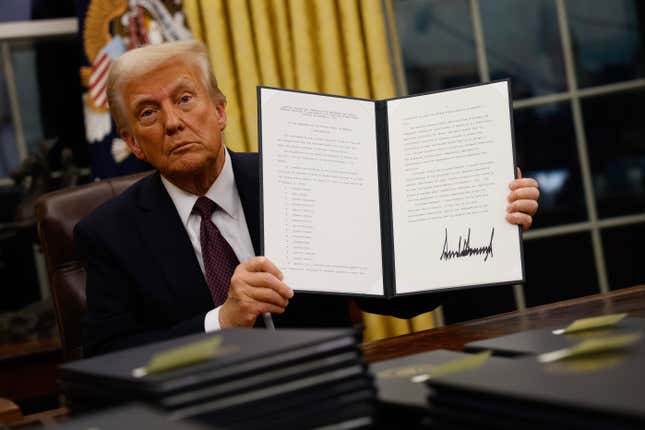
President Donald J. Trump has been quite busy since his second inauguration on Jan. 20. He wasted absolutely no time in the Oval Office, signing dozens of executive orders on day one which represent the new Trump-era of America.
Of the many orders the president signed, there’s one that might put the jobs of many federal employees at risk. According to the White House, all federal departments and agencies are expected to “terminate remote work arrangements and require employees to return to work in-person at their respective duty stations on a full-time basis.”
The rise of remote work came during the height of the COVID-19 pandemic, but according to the Trump Administration, it’s about time Americans move passed this norm. But Nicholas Bloom, an economics professor at Stanford University studying labor and management issues, said this new mandate could cause some damage.
“The politics play well with the MAGA crowd, because work-from-home workers tend to be higher educated,” said Bloom. According to the PEW Research Center, non-educated voters make up more than 60 percent of republican supporters. While college educated voters tend to vote blue.
Statistics also show federal workers are more educated than the civilian workforce, according to PEW. Because of this, Bloom said government services will more than likely be impacted by the new order.
“I think there’s going to be a lot of problems with government services falling apart,” he said. “God help anyone who’s interacting with the federal government.”
Trump’s order is set to address a rampant remote work crisis across the country, but government data shows differently. According to a report issued by the White House Office of Management and Budget, only about 46 percent of federal workers are eligible for remote work, and about 228,000 of these employees fully work from home.
But the majority of government workers— like politicians, judges, military members, HR employees, and finance specialists— already report to their respective offices for work.
The American Federation of Government Employees (AFGE), a federal employee union, weighed in on the matter to defend remote work. In an email sent by AFGE, hybrid work continues to play a “key” role in attracting the country’s best employees. “Restricting the use of hybrid work arrangements will make it harder for federal agencies to compete for top talent,” the email said.
The other issue with Trump’s order is more than 30 percent of federal employees are unionized, and in many cases, the unions determine remote and hybrid work for its workers, according to WTOP.
“The president, historically, has not had the authority to unilaterally alter the terms of labor contracts,” said Terry Clower, the director of the Center for Regional Analysis at George Mason University. “He doesn’t have the authority, despite some rhetoric about ‘breaking the unions,’ as the old saying would go.”
Clower agreed with Bloom that Trump’s proposal could scare off potential and current workers.
“If you’re having to do that every day, it could be that other jobs look more attractive,” he continued. “One of the responses to the pandemic with some folks around here was they chose to move further out to where they could afford to actually buy a home.”
Everett Kelly, the national president of the AFGE shared a similar sentiment adding, “Every American has a stake in ensuring that federal employees remain free to carry out the mission of the agencies that employ them without fear of political interference.”

